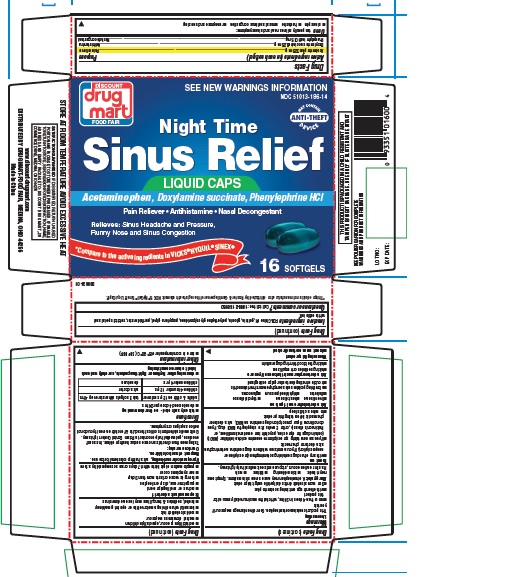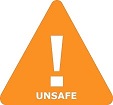Night Time Sinus Relief | Acetaminophen, Phenylephrine Hydrochloride, Doxylamine Succinate Capsule while Breastfeeding

What is Night Time Sinus Relief | Acetaminophen, Phenylephrine Hydrochloride, Doxylamine Succinate Capsule ?
Brief: Pain reliever Antihistamine Nasal decongestant
Night Time Sinus Relief | Acetaminophen, Phenylephrine Hydrochloride, Doxylamine Succinate Capsule safe in breastfeeding?

Night Time Sinus Relief | Acetaminophen, Phenylephrine Hydrochloride, Doxylamine Succinate Capsule Breastfeeding Analsys
Acetaminophen while Breastfeeding
SafeCAS Number: 103-90-2
Excreted in very low amount into breast milk. Infant intake may be lower than 4% of usual pediatric dose. The American Academy of Pediatrics rates it as compatible with Breastfeeding.
Doxylamine succinate while Breastfeeding
UnsafeCAS Number: 469-21-6
It is a first generation antihistamine drug which is related to ethanolamine, with sedative and anti-muscarinic effects. It has been used as hypnotic and for vomiting relief. At latest update, relevant published data on excretion into breast milk were not found. Pharmacokinetic characteristics would favour that it may be excreted into breast milk in significant amount. On a telephone survey, 10% of infants whose mothers were on several types of antihistamine medication have suffered of colicky pain and irritability that disappeared without treatment. For both treatment of mothers and infants would be safer the use of tested antihistamine medication without sedative effect, especially in prematures and infants younger than 1 month of age. Whenever used while breastfeeding, the use of the lower effective dose and for the shortest time as possible is recommended. Follow-up for somnolence and feeding troubles should be warranted. Bed-sharing is not recommended when the mother is on this medication.
Phenylephrine hydrochloride while Breastfeeding
Low RiskCAS Number: 59-42-7
Used on topical decongestant solutions for nose drops at low concentration. 10% midriatic eye drops are available. Because low concentration is used on nose and ophtalmic drops a significant excretion into breast milk is unlikely. Low oral biodisponibility minimizes any risk of harmful effect in the infant. Authorized for nasal or ophtalmic use on children aged younger than 1 year. Although on latest update relevant data on breastfeeding was not found it is considered to be safe when minimal dose is used. Avoid excessive or long term use. A related drug Pseudoephedrine can inhibit milk production. It would be advisable to press on the lachrimal sac to minimize absorption.
Night Time Sinus Relief | Acetaminophen, Phenylephrine Hydrochloride, Doxylamine Succinate Capsule Breastfeeding Analsys - 2
Acetaminophen while Breastfeeding
CAS Number: 103-90-2
Acetaminophen is a good choice for analgesia, and fever reduction in nursing mothers. Amounts in milk are much less than doses usually given to infants. Adverse effects in breastfed infants appear to be rare.
Doxylamine succinate while Breastfeeding
CAS Number: 469-21-6
Small occasional doses of doxylamine would not be expected to cause any adverse effects in breastfed infants. Larger doses or more prolonged use may cause drowsiness and other effects in the infant or decrease the milk supply, particularly in combination with a sympathomimetic such as pseudoephedrine or before lactation is well established.
Phenylephrine hydrochloride while Breastfeeding
CAS Number: 59-42-7
The oral bioavailability of phenylephrine is only about 40%,[1] so the drug is unlikely to reach the infant in large amounts. However, intravenous or oral administration of phenylephrine might decrease milk production. Because no information is available on the use of oral phenylephrine during breastfeeding, an alternate drug may be preferred, especially while nursing a newborn or preterm infant.Phenylephrine nasal spray or ophthalmic drops are less likely to decrease lactation. To substantially diminish the effect of the drug after using eye drops, place pressure over the tear duct by the corner of the eye for 1 minute or more, then remove the excess solution with an absorbent tissue.
I already used Night Time Sinus Relief | Acetaminophen, Phenylephrine Hydrochloride, Doxylamine Succinate Capsule and meanwhile I breastfed my baby should I be concerned?
We have already established that Night Time Sinus Relief | Acetaminophen, Phenylephrine Hydrochloride, Doxylamine Succinate Capsule is unsafe in breastfeeding and breastfeeding while using Night Time Sinus Relief | Acetaminophen, Phenylephrine Hydrochloride, Doxylamine Succinate Capsule is not a good idea however if have already used
My doctor has prescribed me Night Time Sinus Relief | Acetaminophen, Phenylephrine Hydrochloride, Doxylamine Succinate Capsule, what should I do?
If your doctor knows that you are breastfeeding mother and still prescribes Night Time Sinus Relief | Acetaminophen, Phenylephrine Hydrochloride, Doxylamine Succinate Capsule then there must be good reason for that as Night Time Sinus Relief | Acetaminophen, Phenylephrine Hydrochloride, Doxylamine Succinate Capsule is considered unsafe, It usually happens when doctor finds that overall advantage of taking
If I am using Night Time Sinus Relief | Acetaminophen, Phenylephrine Hydrochloride, Doxylamine Succinate Capsule, will my baby need extra monitoring?
Yes, Extra monitoring is required if mother is using Night Time Sinus Relief | Acetaminophen, Phenylephrine Hydrochloride, Doxylamine Succinate Capsule and breastfeeding as it is considered unsafe for baby.
Who can I talk to if I have questions about usage of Night Time Sinus Relief | Acetaminophen, Phenylephrine Hydrochloride, Doxylamine Succinate Capsule in breastfeeding?
US
National Womens Health and Breastfeeding Helpline: 800-994-9662 (TDD 888-220-5446) 9 a.m. and 6 p.m. ET, Monday through Friday
UK
National Breastfeeding Helpline: 0300-100-0212 9.30am to 9.30pm, daily
Association of Breastfeeding Mothers: 0300-330-5453
La Leche League: 0345-120-2918
The Breastfeeding Network supporter line in Bengali and Sylheti: 0300-456-2421
National Childbirth Trust (NCT): 0300-330-0700
Australia
National Breastfeeding Helpline: 1800-686-268 24 hours a day, 7 days a week
Canada
Telehealth Ontario for breastfeeding: 1-866-797-0000 24 hours a day, 7 days a week
